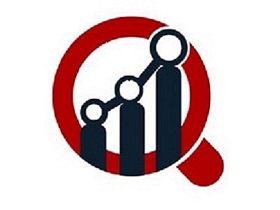Biosimilars Market Research Report with Outlook, Strategies, Challenges, Geography Trends,
A Biosimilar is described as a biological, medical product
which is an identical copy of the original medical product. Market Research
Future (MRFR) has published and released a research report Analyzing the market
structure, this report estimates the future growth potential of the market. It
observes the strategies of the key players in the market and follows the
competitive developments like joint ventures, new product developments, mergers
and acquisitions, research and developments (R & D) in the market.
about the global biosimilars
market that predicts massive enlargement for this market with 26% CAGR
during the forecast period between 2016 and 2023. In terms of cash, the market
has been anticipated to rise to the US $ 16.97 bn.This report also covers
insights on the major countries/regions in which this industry is flourishing,
along with the list and description of untapped regions which could be the
potential markets in the future.
The key factors aiding the growth of the global biosimilars
market include clinical trial activities for biosimilars, increasing demand for
the cheap medical products, increasing incident of different diseases, and
strategic collaborations resulting in enhanced productivity. However, lack of
awareness and physician skepticism are the major restraining factor regarding
market growth.
Request
Free Sample Copy at: https://www.marketresearchfuture.com/sample_request/1329
Key Players
The key players in
the global biosimilars market include Accord Healthcare (UK), Amgen Inc. (USA),
Astra Zeneca (UK), Biocon Ltd. (India), Celltrion, Inc. (South Korea), Dr.
Reddy’s Laboratories Ltd. (India), Eli Lilly (USA), F. Hoffmann-La Roche Ltd.
(Switzerland), Novartis (Switzerland), Pfizer Inc. (USA), Samsung Bioepis
(South Korea), Sandoz International GmbH (Germany), and Teva Pharmaceuticals
Industries Ltd. (Israel).
The segmentation global biosimilars market is on the basis
of application, manufacturing, product, and region. The application based
segmentation segments the market into blood-related disorders, immunity-related
diseases, oncology, and other. Based on manufacturing, the market has contract
manufacturing and in-house manufacturing. As per segmentation based on product,
the market has been segmented into recombinant glycosylated proteins,
recombinant non-glycosylated proteins, and others. Recombinant glycosylated
proteins have been further segmented into Monoclonal antibody (mAb) and EPO.
Recombinant non-glycosylated proteins have been further segmented into growth
hormones, insulin, and other.
The regional segmentation of the global biosimilars market
segments the market into continent-based regional markets namely Asia Pacific,
North America, Europe, and rest of the world (RoW). According to the report,
Europe is the biggest regional market for the biosimilars due to the advanced
medical research, increasing the prevalence of diseases and rising geriatric
population. Due to technological advancement, Western Europe is a bigger market
than Eastern Europe. The key country-specific markets in Western Europe include
France, Italy, Spain, Germany, and the United Kingdom (UK), followed by the
rest of Western Europe.
North America is the second largest market, being ahead of
Europe in terms of technological advancement and being equal to Europe in terms
of medical research. North America‘s approach towards biosimilars is not as
welcome as Europe‘s is. Major country-specific markets in North America are
Canada and the United States of America (USA). The Asia Pacific has been
expected to emerge as the fast-growing market during the forecast period. The
country-specific markets generating maximum revenue in this region are
Australia, India, Japan, South Korea, and China, followed by the rest of the
Asia Pacific region.
Latest Industry News
• Mundipharma,
a network of independent pharma companies, has acquired Spanish biosimilars
development company Cinfa Biotech. The deal gives Mundipharma, access to a
biosimilar to Amgen’s Neulasta (pegfilgrastim). 10 OCT 2018
• The new
white paper issued by the Association of European Cancer Leagues, a nonprofit,
pan-European organization of national and regional cancer societies, has called
for the greater use of biosimilars as a means to increase patient access to
cancer treatment, and reduce costs. 10 OCT 2018
Browse Detailed TOC
with COVID-19 Impact Analysis at: https://www.marketresearchfuture.com/reports/biosimilars-market-1329
At Market Research Future (MRFR), we enable our customers to
unravel the complexity of various industries through our Cooked Research Report
(CRR), Half-Cooked Research Reports (HCRR), & Consulting Services. MRFR
team have supreme objective to provide the optimum quality market research and
intelligence services to our clients.
Contact:
Akash Anand
Market Research Future
+1 646 845 9312




Comments
Post a Comment